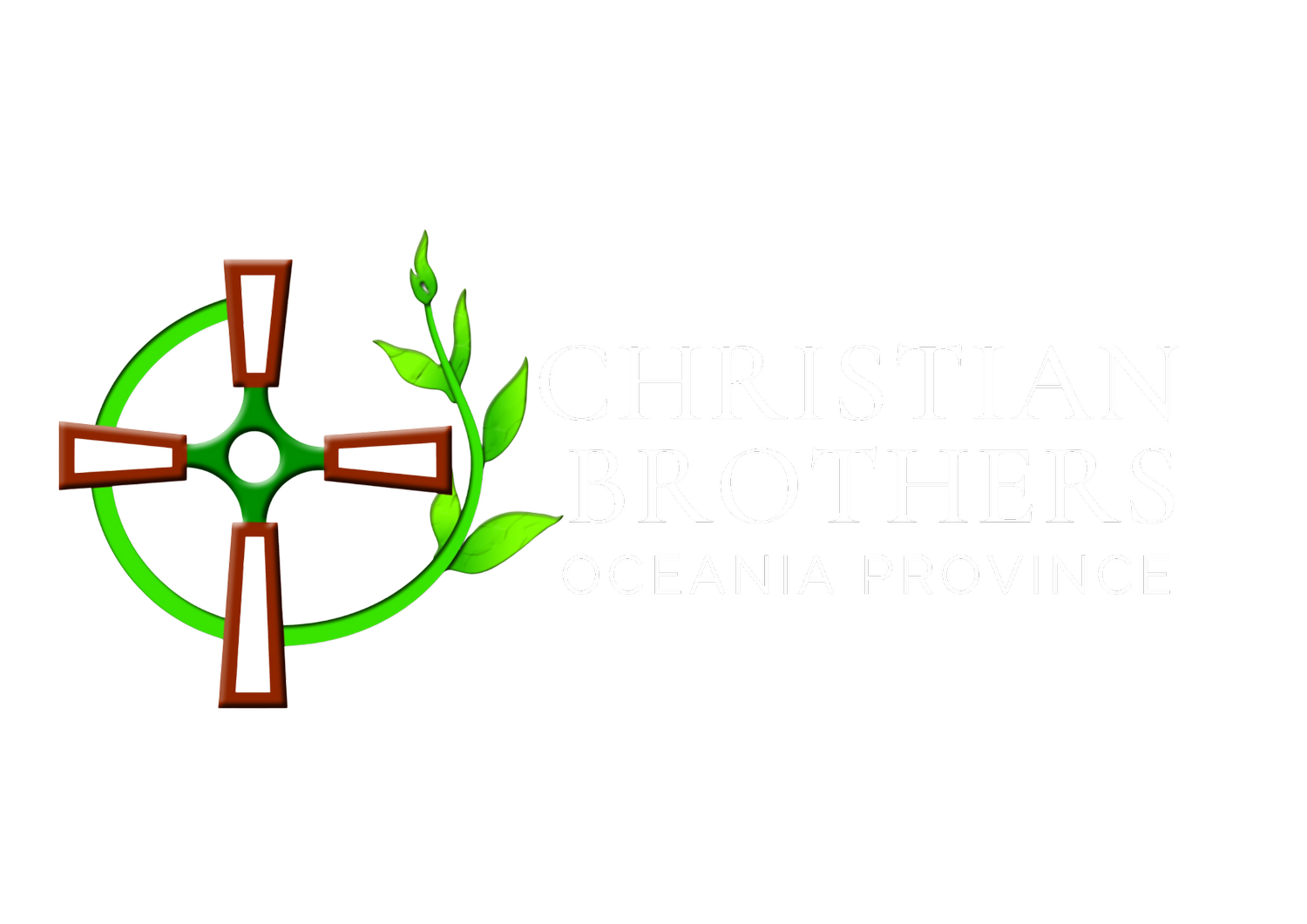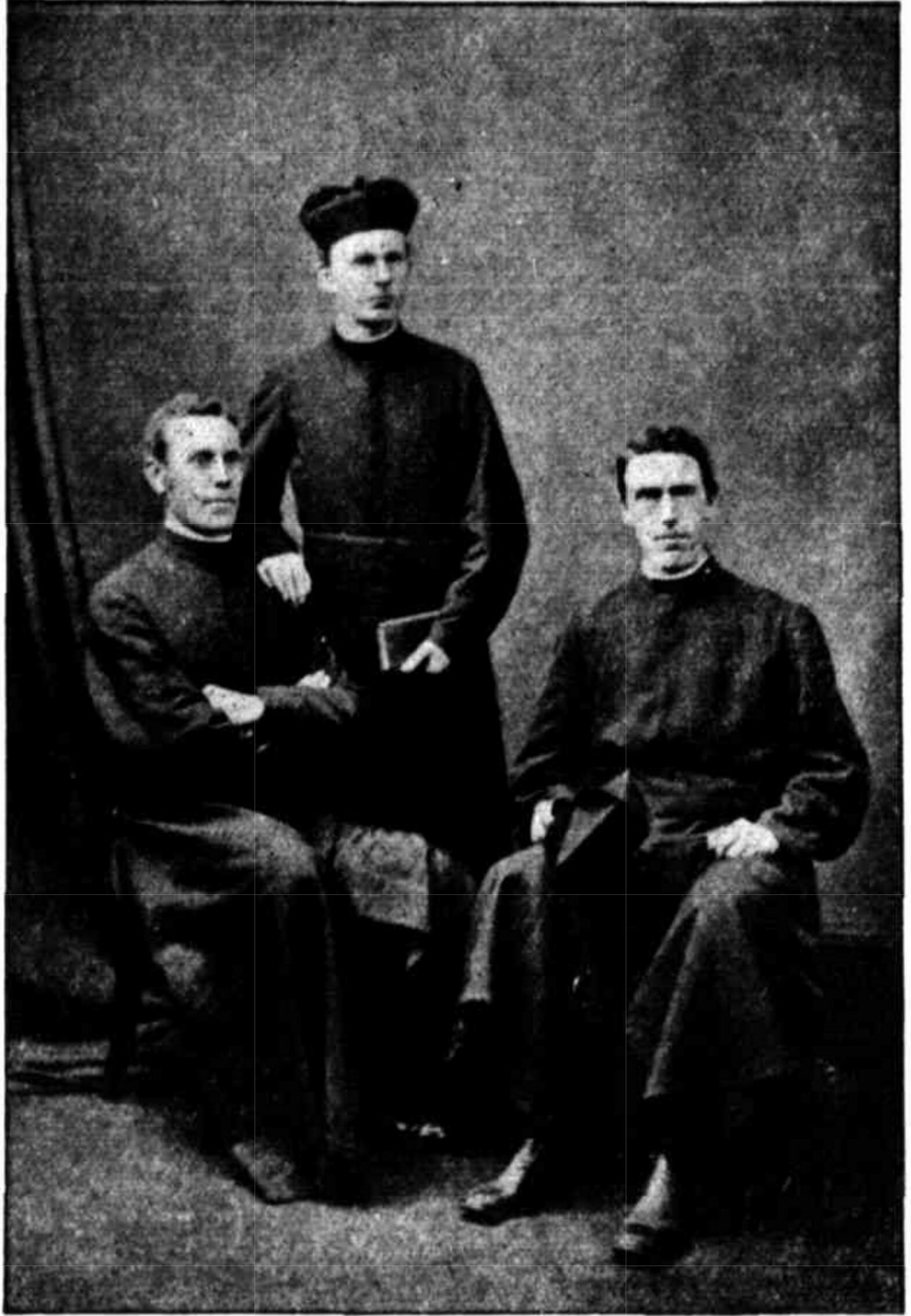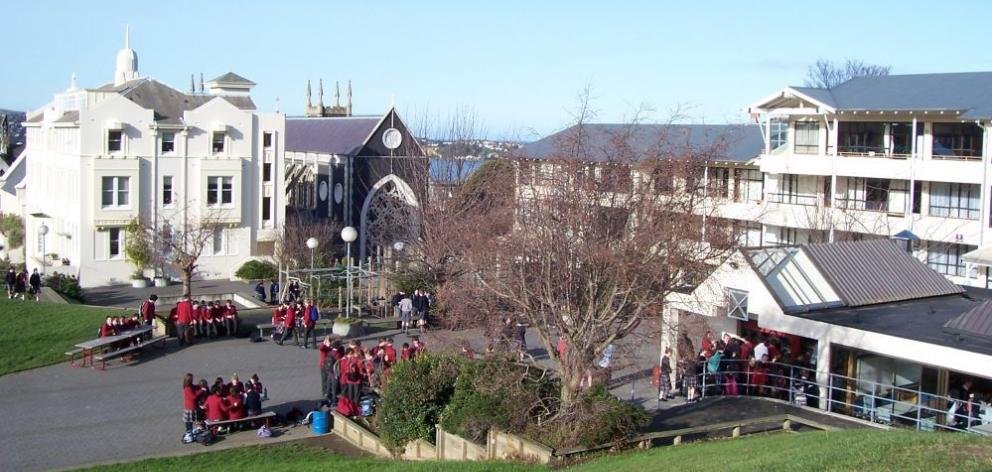
Dunedin, New Zealand
The Christian Brothers in New Zealand
Photograph from the second half of the 19th century of three Irishmen (Dominic Fursey Bodkin, Patrick Ambrose Treacy, and John Barnabas Lynch) who brought the Christian Brothers order to Australia & New Zealand.
Edmund Rice Legacy crosses the Tasman
Since their arrival in New Zealand in 1876, the Christian Brothers have been synonymous with Catholic education in schools and colleges. Their arrival coincided with the opening of a secondary school in Dunedin, the Christian Brothers School.
Seventy-four years after Edmund Rice opened his first school in Waterford, on Sunday April 2, Br Dominic Fursey Bodkin, Brs Dunne, Healy and McMahon arrived at Port Chalmers in New Zealand.
The brothers were welcomed by Bishop Patrick Moran and a gathering of Catholic people. Soon they settled into the coach to travel to Dunedin. On arrival they attended the 11.00 am Celebration of the Eucharist. Bishop Moran’s request for Christian Brothers was made direct to the Superior-General in Dublin, who then sent instructions to Melbourne.
In 1871 ten Dominican Sisters from Ireland had arrived in Dunedin and established a school for girls. Within a few years the two Catholic schools were side-by-side.
Thus the foundation for Catholic school education was established in the south of New Zealand.
The Congregation grows
The story of the arrival of the religious people is similar to many which have been written elsewhere across the globe.
Over the years many students from Christian Brothers’ High School joined the Congregation. One year 12 entered and were referred to as the Twelve Apostles. The following year 7 sailed across the Tasman Sea. They were labelled the Seven Gifts of the Holy Spirit.
A hostel was set-up in Dunedin to accommodate boys from the country. From 1917 to 1924 the number of boarders grew to 30 boys. Within a few years the Brothers were able to purchase the Redcastle Estate in Oamaru. In 1927 they established a boarding school and named it St Kevin’s College. The homestead became the Brothers’ Residence. The stables were transformed into classrooms and later a three-storeyed building was constructed – kitchen and dining room on the ground with two floors above for dormitories. It was named the Magee Block after Br Magee, the first Principal.
Rattray St Dunedin, New Zealand circa 1862
Growth in Dunedin
In 1939 St Peter’s College was established in Auckland. Bishop James Liston had been a student at CBHS Dunedin and might have been a contemporary of Br Benignus Hanrahan, Provincial of the Australian Province. They settled the arrangements for a new college. Today SPC is a well established and very respected college.
In 1949 St Edmund’s School was established in South Dunedin. This was a primary school of four classes and was a ‘feeder’ to CBHS.
The NZ Vice-Province was set-up in 1960. Br Claver Marlow was brought across from Sydney to be the Vice-Provincial . In 1961 St Thomas of Canterbury College was established in Christchurch with three Brothers for each of the three classes. Within two years the ownership of the young college was transferred from the diocese to the Congregation.
Past prefects (from left) Silveria Wulf, head girl Helena Strickland, Edmund Tupuna, Murray Wilson and Teremoana Matai at the unveiling of the school's new sign in 2012. Photo: Cook Island News
New Zealand’s foray into the Cook Islands
In a very short time another urgent request came to the Brothers. The population of Rotorua was expanding rapidly and the efforts to provide Catholic secondary education were unsatisfactory. Consequently the Brothers, in 1963, opened Edmund Rice College, with three Brothers in the Community. The school for girls under the guidance of the Srs of St Joseph was adjacent. The colleges were amalgamated in 1987. A lay person was appointed the Principal, and the Brothers withdrew soon afterwards.
In response to the encouragement for each Province to establish a missionary station, New Zealand ventured into the Cook Islands. In 1976 three Brothers were sent to staff Nukutere College which had been established in Rarotonga for girls and boys. This was the centenary year of the Brothers in New Zealand. Various Brothers and Volunteers from NZ helped to Staff the college, along with Sisters from several different Congregations. The decline in numbers of Brothers led to our withdrawal in 2010, but the college continues to serve the Community.
“The world and everything in it is continually changing”
~ Edmund Rice
~ Edmund Rice
The New Province in Christchurch
Liston College became our second involvement with the diocese of Auckland. There was an empty site for a new school in Henderson. In 1974 two Brothers with a class each operated in borrowed facilities until the new buildings were constructed on the real site. It has continued to grow successfully serving the lads in the western area of Auckland city
In 1989 the Provincial Council established a Community of two Brothers in Murupara amongst the Ngati Manawa people. The local sawmill had closed which resulted in serious unemployment. A Learning Centre was set-up by the two pioneer Brothers, which grew into a functional asset to the town. Camps were held in the local native bush and environmental lessons were learned. A radio station, ERFM, was established for information and entertainment. The last Brother engaged in Murupara left in 2017.
The new Province began a programme for the Formation of young men interested in joining the Brothers. The Srs of St Joseph had a property where they had a small school which included a dormitory, and was no longer in use. It was located in the southern-most parish of the Christchurch diocese isolated on a country road. In the early 60s two Brothers and a few young men set-up a Juvenate. During its second year a well-established property near Christchurch was bought and it became the Formation House and Provincial Centre.
A Community was established in Westport on the western coast of the South Island, at the mouth of the Buller river. Members of the Community became involved in activities within the Parish, and responded to the special needs of residents.
Edmund Rice Camps
Edmund Rice Camps have been very active in Dunedin and Auckland for many years. An Edmund Rice Youth Support Trust functioned in the southern suburbs of Auckland for eight years but met with financial difficulties and had to close. The Edmund Rice Family (New Zealand) operated for some years.
Edmund Rice Camps are for children aged 8-12 who need a break due to social, financial or family reasons. The camps aim to provide a fun-filled week of activities and challenges that encourage children to come out of their shells and realise their full potential. The diversity of children and leaders who come on camp creates a culturally enriched environment that explores, teaches and motivates positive behaviour, confidence, life skills, leadership amongst many other benefits.
The Edmund Rice Leadership Programme for College Student Leaders was held at the beginning of each school year, but has been curtailed for three years because of the Covid-19 conditions.
Learn about our history
The Oceania Province assists people wishing to source material about the Christian Brothers and more specifically about the Brothers in the Oceania Region.

Since 1802 the work that Edmund Rice started has spread to 30 countries….
The Christian Brothers first came to parts of the Oceania Province in 1843. The presence of the Christian Brothers in Oceania began in Sydney and quickly spread throughout Australia, to New Zealand and then later through Papua New Guinea, the Philippines and Timor Leste.
Akaroa, Christchurch, New Zealand







